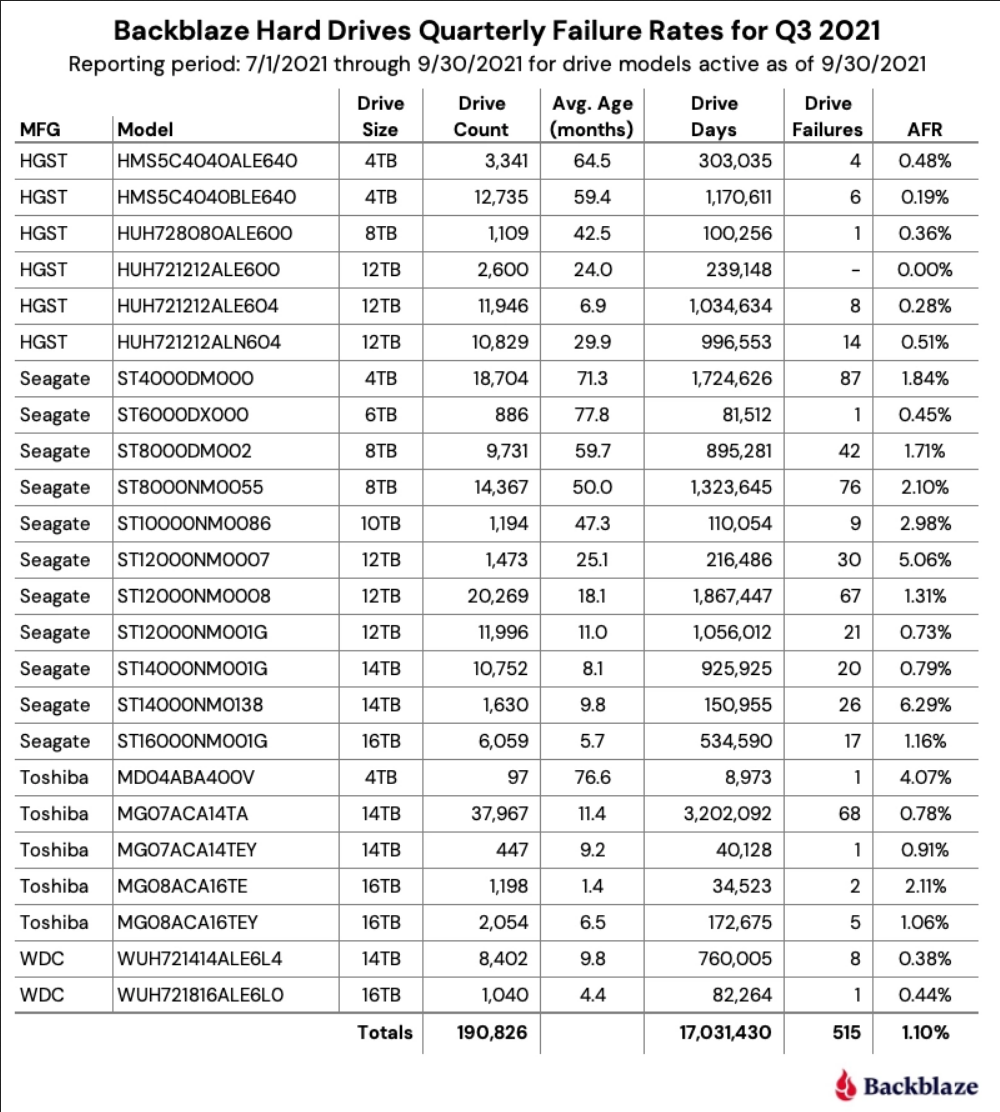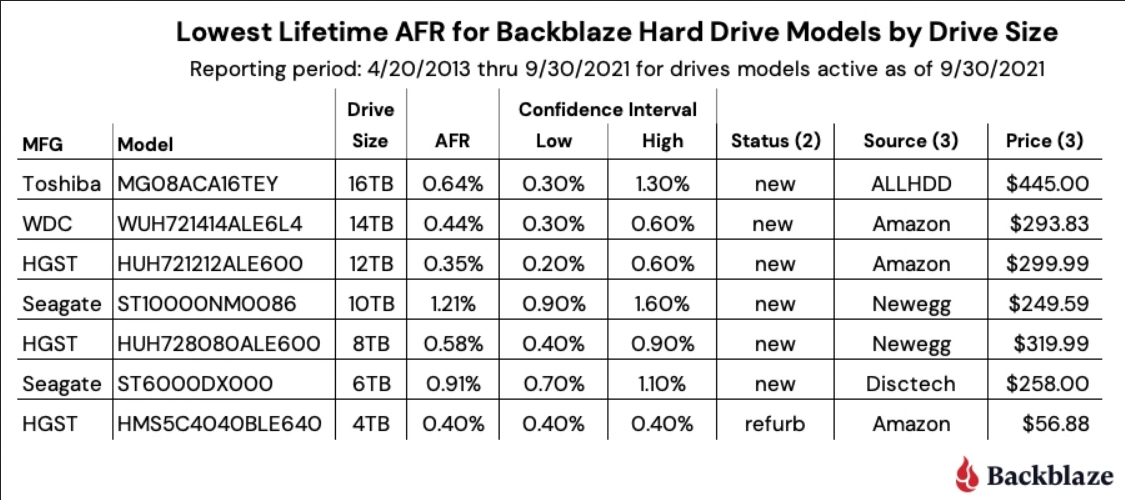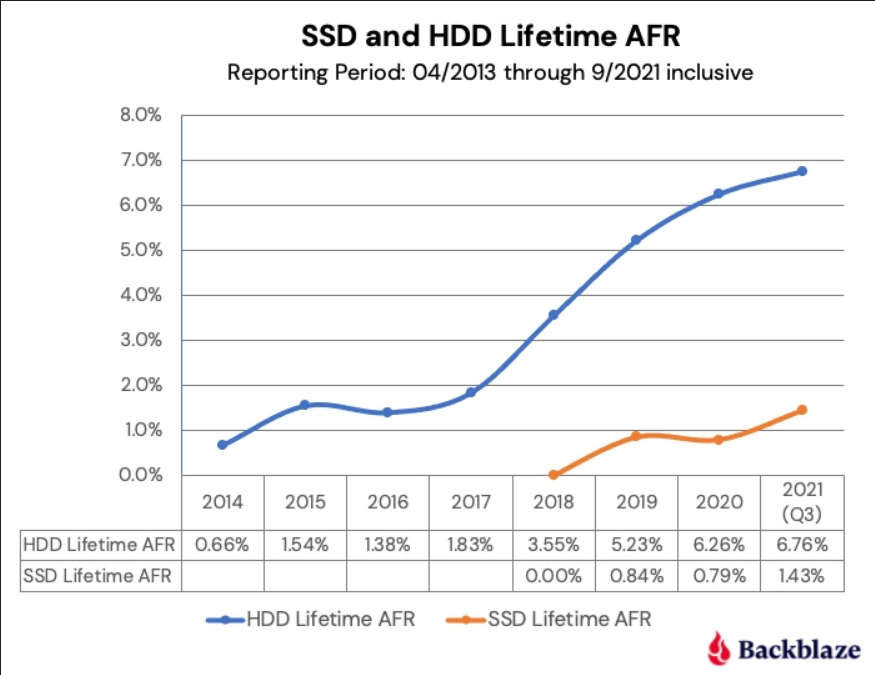Backblaze Updates HDD and SSD Performance Analysis for Q3 2021
The performance of SSD reliability is still on par with hard drives
Backblaze is back again with a new update on its hard drive and SSD failure rates for the 3rd quarter of 2021. As of September 30th, 2021, the company had 194,749 drives spread across four data centers and two continents, with 3537 boot drives consisting of both SSDs and hard drives. Backblaze cataloged these drives to see which failed and which were the most reliable during the quarter. The only exception is the removal of 386 drives which were either in low numbers or used for testing purposes.

The best performing drives for Q3 of 2021 include the HGST 12TB drive, Seagate 6TB, Toshiba 4TB, Toshiba 14TB, and the WDC 16TB. All of these drives -- except for the HGST drive -- had only one drive failure. Backblaze notes that these drives are relatively young, with a small amount of activity time, but the results are still promising.
The HGST 12TB drive, on the other hand, is quite impressive, showing zero drive failures during its life cycle so far.
More solid drives in the list include the HGST 4TB, HGST 12TB and the WDC 14TB drives. All of these drives have a lower than 0.5% average failure rate, making them solid performers for Backblaze's servers, with very low-reliability issues.

Backblaze is also happy to report that its hard drives' lifetime average failure rate continues to drop. Overall, the best performing drives include seven units, ranging from 4TB to 16TB manufactured from Seagate, WDC, and HGST.
The most impressive drives include the WDC 14TB and HGST 12TB, which feature 0.3% and 0.2% AFR, respectively. This is impressive because some of these drives are up to six years old and still perform very well.

Backblaze has also updated its SSD and HDD comparisons to see if SSDs are more reliable than their HDD counterparts. It appears that as of Q3 of 2021, failure rates remain very similar to hard drives at 1.5%.
Get Tom's Hardware's best news and in-depth reviews, straight to your inbox.
Blackbaze believes this is perfectly normal according to its knowledge about drive failure rates. It's reasonable for SSDs to fail more and more as they get older.
What we have yet to know is how fast or how slow the SSDs will degrade. For now, it seems they are failing at a steady rate compared to HDDs. But, SSDs have only been in use since 2018, so it will take a few years until Backblaze gets more detailed information.

Aaron Klotz is a contributing writer for Tom’s Hardware, covering news related to computer hardware such as CPUs, and graphics cards.